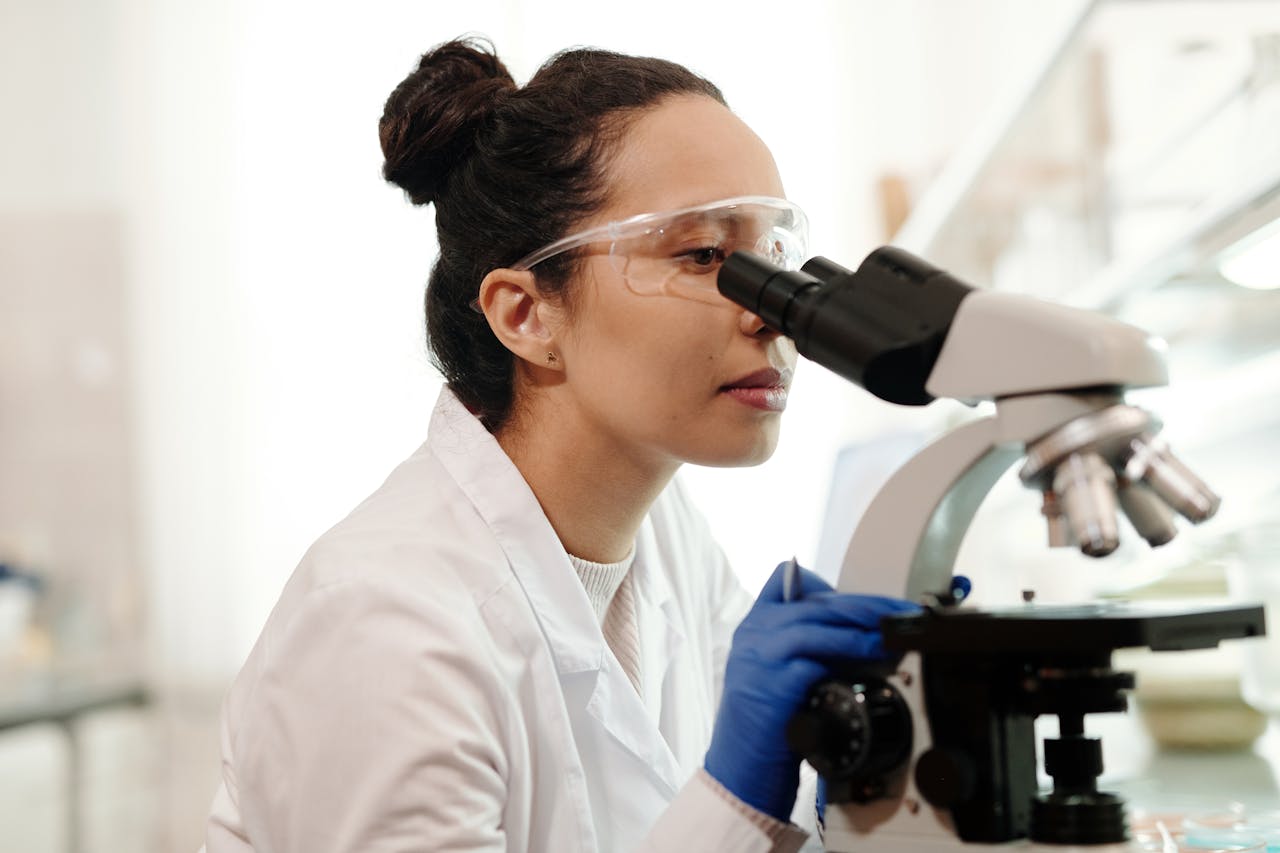Biotechnology Breakthroughs: Innovations in Healthcare, Agriculture, and Beyond
Biotechnology, the application of biological systems and organisms to develop products and technologies, has revolutionized various industries, from healthcare and agriculture to environmental conservation and energy production. Over the years, biotechnology has led to numerous breakthroughs and innovations that have transformed the way we address key challenges and improve our quality of life. Let's explore some notable biotechnology breakthroughs across different sectors:


Healthcare
- Genetic Engineering: Advances in genetic engineering techniques, such as CRISPR-Cas9, have revolutionized the field of genetics and genomics, enabling precise editing of DNA sequences for gene therapy, disease treatment, and crop improvement.
- Biopharmaceuticals: Biopharmaceuticals, including monoclonal antibodies, vaccines, and recombinant proteins, have become essential tools for diagnosing, treating, and preventing diseases such as cancer, autoimmune disorders, and infectious diseases.
- Personalized Medicine: The emergence of personalized medicine, fueled by genomic data and molecular diagnostics, has enabled healthcare providers to tailor treatments and therapies to individual patients' genetic makeup, improving treatment outcomes and reducing adverse effects.
- Regenerative Medicine: Regenerative medicine techniques, such as stem cell therapy and tissue engineering, hold promise for repairing and replacing damaged tissues and organs, offering new treatment options for conditions such as heart disease, spinal cord injuries, and diabetes.
Agriculture
- Genetically Modified Organisms (GMOs): GMOs, engineered to possess desirable traits such as pest resistance, drought tolerance, and increased yield, have transformed agriculture by enhancing crop productivity, reducing chemical inputs, and addressing food security challenges.
- Precision Agriculture: Precision agriculture technologies, including remote sensing, GPS tracking, and data analytics, enable farmers to optimize crop management practices, conserve resources, and minimize environmental impact by precisely targeting inputs such as water, fertilizer, and pesticides.
- CRISPR-Based Crop Improvement: CRISPR-based genome editing techniques offer a precise and efficient tool for crop improvement, allowing scientists to introduce beneficial traits, such as disease resistance and nutritional content, into crop plants with greater accuracy and speed.
- Vertical Farming and Controlled Environment Agriculture: Vertical farming and controlled environment agriculture technologies enable the production of crops indoors, using advanced lighting, hydroponic, and aeroponic systems, allowing for year-round production, reduced water usage, and increased food resilience.
Environmental Conservation
- Bioremediation: Bioremediation techniques harness the natural abilities of microorganisms to degrade and detoxify pollutants in soil, water, and air, offering a sustainable and cost-effective approach to environmental cleanup and remediation.
- Biofuels: Biofuels, derived from renewable biomass sources such as plants and algae, offer a cleaner and more sustainable alternative to fossil fuels, reducing greenhouse gas emissions and dependence on finite resources.
- Biological Pest Control: Biological pest control methods, such as using natural predators, parasites, and pathogens to manage pest populations, offer an eco-friendly alternative to chemical pesticides, reducing environmental harm and preserving biodiversity.
- Synthetic Biology: Synthetic biology techniques enable scientists to design and engineer novel biological systems and organisms for applications such as biofuel production, bioremediation, and biosensing, offering innovative solutions to complex environmental challenges.
Energy Production
- Microbial Fuel Cells: Microbial fuel cells harness the power of microorganisms to generate electricity from organic waste materials, offering a renewable and sustainable energy source for remote locations and wastewater treatment facilities.
- Algal Biofuel: Algal biofuel production utilizes microalgae to convert sunlight and carbon dioxide into biofuels such as biodiesel and ethanol, offering a promising alternative to traditional fossil fuels with lower carbon emissions and environmental impact.
- Biogas Production: Biogas production from organic waste materials such as agricultural residues, food waste, and sewage offers a renewable and clean energy source for heating, cooking, and electricity generation, reducing reliance on fossil fuels and mitigating greenhouse gas emissions.
- Bio-Based Materials: Bio-based materials, derived from renewable biomass sources such as plants, trees, and algae, offer sustainable alternatives to petroleum-based plastics and materials, reducing carbon footprint and environmental pollution.


As we continue to unlock the potential of biotechnology, the possibilities for addressing global challenges and improving human well-being are endless. From personalized medicine and sustainable agriculture to environmental conservation and renewable energy, biotechnology breakthroughs have the power to transform our world for the better, paving the way for a more sustainable and resilient future.












